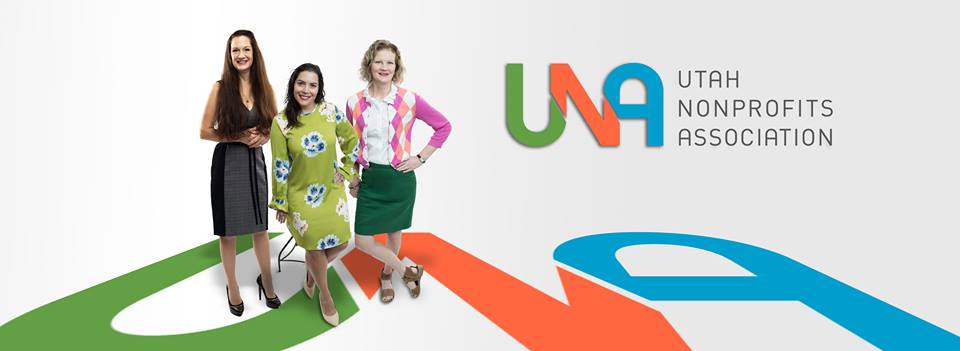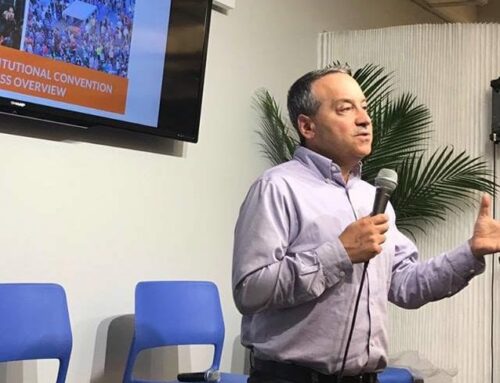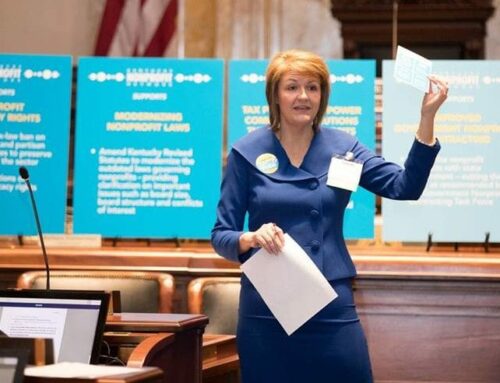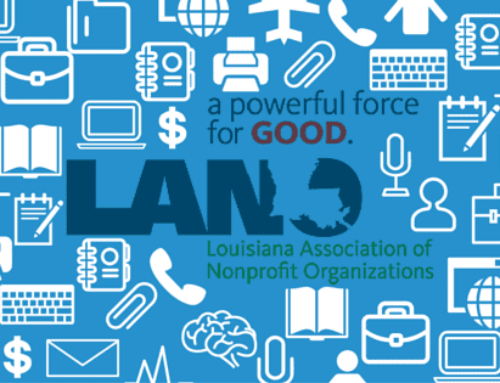Kate Rubalcava, the CEO of Utah Nonprofits Association (UNA), has been around the nonprofit community for most of her life. She remembers the example her mother set by being active in their neighborhood and serving on the board of a local nonprofit. Coming from a working class family she also learned early that having a strong work ethic was critical to success.
“I understood what it meant to serve other people and to be part of something larger than yourself,” Rubalcava says. “This formed my core character.” Nonprofit work became increasingly personal to her as she grew older and noticed needs in her neighborhood, which was a lower income area.
“I understood what it meant to serve other people and to be part of something larger than yourself.” – Kate Rubalcava
“There was a time when I really started to see my neighborhood, and things were very neglected and looked over by city government,” Rubalcava explains. Although she was young at the time, she became concerned as a member of the community.
“When I told my mom, she said, ‘There’s a meeting with the mayor this week, you should go,” Rubalcava recalls. So she took action. Despite her age, Rubalcava wrote a speech for a town hall meeting, which she read to the mayor. People in the audience were receptive and wanted to help get her involved, even extending invitations to sit on boards. Speaking out gave Rubalcava a seat at the table.
From then on, Rubalcava has lived and worked in her neighborhood, trying to focus everything on giving back to her community. She delivered her speech to the mayor seventeen years ago, but she has been working within nonprofits and community development ever since. What began as genuine concern for her community has become a career.
Mostly recently, her devotion to nonprofit work has manifested in her position as the CEO of UNA. Since 2016, she has led the organization as it serves nonprofits through a variety of programs. For example Rubalcava and her team lead a credential program for nine critical human capital areas that support nonprofits. “If people move or leave the organization, having existing policies and procedures in place helps the organization keep moving,” Rubalcava explains.
Throughout the state, UNA also provides Executive Director and staff roundtable discussions. At these events, nonprofit professionals can come together and learn with one another. Topics for these events cover critical areas the sector is facing. Most recently, they discussed equity and inclusion at a leadership level. Rubalcava hopes that many nonprofits will take advantage of these opportunities.
“There are 6,000 registered 501(c)3s in Utah, but only 10% are members of UNA,” Rubalcava notes. She wishes more nonprofits in the state would realize the UNA is a resource.
“We have seen almost every problem a nonprofit can face, and we have resources and training to help them work through it,” Rubalcava says. Because UNA is focused on helping nonprofits in Utah, the organization can guide nonprofits through state specific laws, especially in regards to fundraising and administration. When nonprofits have questions regarding these regulations, UNA has established resources available to provide them with the answers they need.
“We have seen almost every problem a nonprofit can face, and we have resources and training to help them work through it.” – Kate Rubalcava
“I wouldn’t have known where else to go,” Rubalcava remembers one nonprofit saying upon receiving help from UNA. Rubalcava is excited to work within an organization that is providing much needed assistance to nonprofits. She recognizes the passion of the leaders and staff members in the nonprofit sector, and she is grateful for the opportunity to help them channel that enthusiasm into successes within their organizations.
“I couldn’t be more thrilled and honored to be part of such a dynamic and wonderful place within the nonprofit community,” Rubalcava says.





